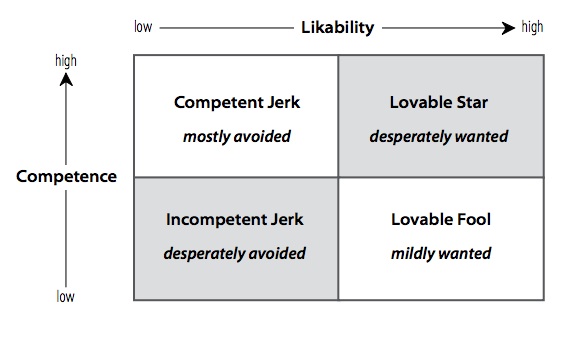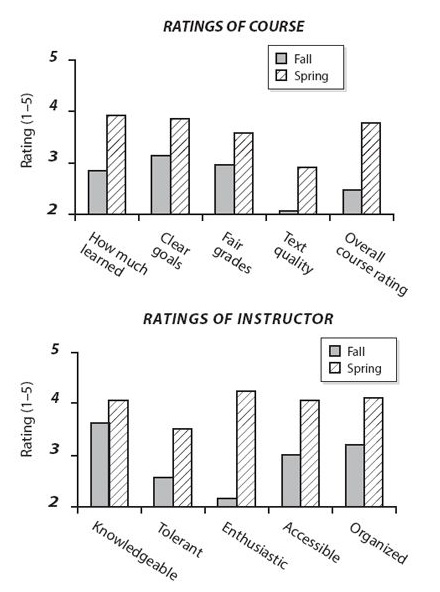How To Be Someone People Love To Talk To
.
***
Before we commence with the festivities, I wanted to thank everyone for helping my first book become a Wall Street Journal bestseller. To check it out, click here.
***
When do we really learn good conversation skills? Well, we don’t. We’re just kind of expected to pick them up…
And we wonder why people aren’t better communicators. How can you be that person people love to talk to?
I’ve posted a lot of research and expert interviews on the subject so let’s round up the info and make it actionable.
In this post you’ll learn:
- How to make a good first impression.
- How to be a great listener.
- What the best subjects to discuss are.
- How to prevent awkward silences.
- How to politely end a conversation.
And a lot more. C’mon, let’s chat.
How To Make A Good First Impression
First impressions really are a big deal and talking to new people can be daunting, no doubt. What’s the answer?
It’s simple, really. Research shows that if you expect people will like you, they probably will:
Social optimists, of course, are in the happy position of expecting to be accepted and finding that, generally speaking, they are. Social pessimists, though, face the dark side of what sociologist Robert K. Merton—who coined the expression ‘self-fulfilling prophecy’—has called a ‘reign of error’. Expectation of rejection leads to the projection of colder, more defensive behaviour towards others, and this leads to actual rejection.
Don’t take the cliche advice and “just be yourself.” Put some effort into being warm and open. Ironically, studies show putting your best foot forward actually reveals the real you:
In sum, positive self-presentation facilitates more accurate impressions, indicating that putting one’s best self forward helps reveal one’s true self.
Smiles are powerful and make you more attractive. From Dale Carnegie to peer-reviewed studies, everyone says smiles matter. (In fact, to increase their power, smile slower.)
FBI behavior expert Robin Dreeke recommends speaking slowly.
Via It’s Not All About “Me”: The Top Ten Techniques for Building Quick Rapport with Anyone:
When individuals speak slowly and clearly, they tend to sound more credible than those who speak quickly.
How can you strategically make a good impression?
From the outset, frame the conversation with a few well-rehearsed sentences regarding how you want to be perceived. This will end up being the structure the other person forms their memories around.
Via Choke: What the Secrets of the Brain Reveal About Getting It Right When You Have To:
The take-home point is that having the appropriate schema or context for encoding information helps us understand and recall this information, but only if we get the schema at the outset… Schemas determine how this new information is stored and what is actually remembered.
(To learn more about the science of a successful life, check out my bestselling book here.)
So you made a good first impression. You might be wondering what to do next. Hold on there, partner. More important is what not to do.
Stop Trying To Impress
Yes, we all want to get respect but try too hard and you can come off as a jerk.
Trying to sound smart makes you look stupid. Studies show name-dropping doesn’t work.
Research from Harvard shows people would rather work with a lovable fool than a competent jerk — even if they won’t admit it:

In Click: The Magic of Instant Connections Ori Brafman and Rom Brafman explore how people connect and give some solid insights. What struck me most was their emphasis on vulnerability.
Via Click: The Magic of Instant Connections:
When you both make yourselves vulnerable from the outset and are candid in revealing who you are and how you think and feel, you create an environment that fosters the kind of openness that can lead to an instant connection — a click.
(For more on how to win every argument, click here.)
So you’re not trying to impress people. What should you do?
Encourage People To Talk About Themselves
People who have trouble making conversation always say the same thing: “But what do I talk about?”
Wrong question. The right question is “How do I get them talking about themselves?“
It gives their brain as much pleasure as food or money:
Talking about ourselves—whether in a personal conversation or through social media sites like Facebook and Twitter—triggers the same sensation of pleasure in the brain as food or money, researchers reported… “Self-disclosure is extra rewarding,” said Harvard neuroscientist Diana Tamir, who conducted the experiments with Harvard colleague Jason Mitchell. Their findings were published in the Proceedings of the National Academy of Sciences. “People were even willing to forgo money in order to talk about themselves,” Ms. Tamir said.
And when they open up, don’t judge. Nobody — including you — likes to feel judged.
FBI behavior expert Robin Dreeke’s #1 piece of advice: “Seek someone else’s thoughts and opinions without judging them.” Here’s Robin:
The number one strategy I constantly keep in the forefront of my mind with everyone I talk to is non-judgmental validation. Seek someone else’s thoughts and opinions without judging them. People do not want to be judged in any thought or opinion that they have or in any action that they take. It doesn’t mean you agree with someone. Validation is taking the time to understand what their needs, wants, dreams and aspirations are.
Suspend your ego. Avoid correcting people or saying anything that could be interpreted as one-upmanship.
Via It’s Not All About “Me”: The Top Ten Techniques for Building Quick Rapport with Anyone:
Individuals practicing good ego suspension would continue to encourage the other individual to talk about his or her story, neglecting their own need to share what they think is a great story… Those individuals who allow others to continue talking without taking their own turn are generally regarded as the best conversationalists. These individuals are also sought after when friends or family need someone to listen without judgment. They are the best at building quick and lasting rapport.
(To learn on how to talk down angry people, click here.)
Everyone loves a good listener but most people are terrible at listening. What do they do wrong?
Listen — And Make Sure They Know You’re Listening
The difference is you want to engage in “active listening.” Just keeping quiet and nodding isn’t enough.
FBI hostage negotiators use a number of techniques to show kidnappers they are really paying attention:
- Mirroring: Repeat the last 1-3 words the person just said as a question. (Yes, it’s that simple.)
- Paraphrasing: Repeat what they just said in your own words.
- Labeling: Put a name on what they say they’re feeling. “Sounds like you’re feeling pressured.”
A little game I like to play is “Can I summarize what the person just said to their satisfaction?” If you repeat back the gist of what they communicated and they respond, “Exactly” you’re doing great.
(To learn FBI hostage negotiation techniques, click here.)
Of course, you do need to chime in here and there. But when?
Emphasize Similarity
There is extensive research that we like people who are like us. In almost every conceivable way, from background to word choice, emphasizing similarity improves social relations.
When salespeople were told to mimic the body language of listeners it was rarely noticed but sales increased by 20%.
Via Honest Signals: How They Shape Our World:
In the final analysis, just adding mimicry made the sales pitch 20 percent more effective.
(For more on how to emphasize similarity, click here.)
What else should you do?
Questions Are Powerful
What are the best type of questions, in general? Ask open-ended questions. Nothing “yes/no” or that can be answered in just a word or two.
Via It’s Not All About “Me”: The Top Ten Techniques for Building Quick Rapport with Anyone:
One of the key concepts that every great interviewer or conversationalist knows is to ask open-ended questions. Open ended questions are ones that don’t require a simple yes or no answer. They are generally questions that require more words and thought. Once the individual being targeted in the conversation supplies more words and thought, a great conversationalist will utilize the content given and continue to ask open ended questions about the same content. The entire time, the individual being targeted is the one supplying the content of the conversation.
What question should you always have ready? We all face challenges and we like to talk about them. So that’s what to ask about. FBI behavior expert Robin Dreeke explains:
A great question I love is challenges. “What kind of challenges did you have at work this week? What kind of challenges do you have living in this part of the country? What kinds of challenges do you have raising teenagers?” Everyone has got challenges. It gets people to share what their priorities in life are at that point in time.
(To learn other questions that create the strongest bonds with people, click here.)
Okay, you have to talk at some point, right? (Please don’t talk about the weather. Ugh.) So what’s the best thing to discuss?
Travel, Compliments And Advice
Richard Wiseman studied which topics worked best on first dates. Discussing travel was number one.
How do you make people feel good without being slimy? Offer sincere compliments. Shockingly, even insincere flattery works:
The authors show that even when flattery by marketing agents is accompanied by an obvious ulterior motive that leads targets to discount the proffered compliments, the initial favorable reaction (the implicit attitude) continues to coexist with the discounted evaluation (the explicit attitude). Furthermore, the implicit attitude has more influential consequences than the explicit attitude, highlighting the possible subtle impact of flattery even when a person has consciously corrected for it.
But compliments can be one note. What provokes a deeper discussion?
Stanford professor Jeffrey Pfeffer, Wharton professor Adam Grant, persuasion expert Robert Cialdini and many others have all recommended asking for advice as a powerful way to influence others and warm them to you.
I love this method because I get to learn something and the other person gets to feel like an expert. Everyone’s happy.
(For more on the science of making friends, click here.)
So you know what to say. But how should you say it?
Arouse Emotion
Many people make the mistake of thinking conversation is just information exchange. That’s missing the most important part. Think emotion.
Professor Stephen Ceci taught his class the way he had for the past 20 years, replicating nearly everything imaginable — except he started speaking with more enthusiasm. What happened?
His student ratings went up — in every single category. He was seen as more knowledgeable, more tolerant, more accessible, more organized. Students said they learned more. They felt the grading was fairer. They even said the textbook was better.
Via The Tell: The Little Clues That Reveal Big Truths about Who We Are:

(For more on how to be funny, click here.)
Time to get to the scary stuff. How do you avoid awkward silences?
The Conversation Must Progress
Sometime conversations fizzle and it’s reaaaaaaally awkward. Why does this happen? What can we do about it?
Conversations have a natural progression, much like a relationship.
There’s a hierarchy of vulnerability in the types of communication we have, each one being more open and more likely to lead to a solid connection:
- Phatic: These statements have no emotional content: “How are you?”
- Factual: These share information, maybe personal information, but no strong opinions or emotions are involved: “I live in New York.”
- Evaluative: These statements show opinions, but they’re not core beliefs: “That movie was really funny.”
- Gut-level: Here’s where it heats up. The first three are thought-oriented. Gut-level communication is emotionally based. It’s personal, says something deeper about who you are and is focused on feelings: “I’m sad that you’re not here.”
- Peak: The most emotionally vulnerable level. Peak statements share your innermost feelings. “…feelings that are deeply revealing and carry the most risk in terms how the other person will respond.” These statements are rare, even with people we are very close to: “I guess at heart I’m terrified I’m going to lose you.”
The authors of Click spell it out clearly: “We can help to create magical connections simply by elevating the language we use from the phatic to the peak level.”
(For FBI methods that can help you negotiate lower bills, click here.)
There’s one more moment that can be awkward: how do you end a conversation nicely and politely?
How To Say Goodbye
There are a number of phrases that can politely signal the end of a chat. It’s smart to memorize one or two of these.
Via The Art of Conversation: A Guided Tour of a Neglected Pleasure:
Arrangements: Talk of the Next rings the knell for Now.
Any statement starting “Finally,” “Lastly”: Suggests an agenda is nigh complete.
Satisfied Customer: A labeling comment to convey a job has been ticked off the list, “Well, I just wanted to check everything was okay.”
Farewell by implication: Pre-goodbye goodbyes: passing regards to the wife, etc.
Past tense: To kill the Now without committing to future encounters, say “It was great seeing you again,” “This was fun.”
Time’s winged chariot hurrying near: That oh-so-pressing world you must be getting on with, or the missus will kill you, or the shops will have run out of Christmas trees, or the kids will be starving…
Mustn’t keep you: To suggest that you’re halting the other person’s day is polite…
(For more tips on how to master the art of conversation, click here.)
Okay, that’s a lot of info. What’s the most important thing to keep in mind if you forget everything else?
Sum Up
What does FBI behavior expert Robin Dreeke say is the best attitude to take when trying to build rapport? Make sure the other person walks away better for having met you.
Via It’s Not All About “Me”: The Top Ten Techniques for Building Quick Rapport with Anyone:
Before I use these techniques or send any class out to practice these techniques, I remind myself and them of one everlasting rule that will dramatically increase your probability of success; it is all about them. The only goal I have either for myself or the individuals I teach is that in every interaction the other person should walk away feeling much better for having met you. You should brighten their day and listen to them when no one else will. Build that connection where others wouldn’t and you will have mastered both conversations and quick rapport.
Stop trying to impress people or “win” the conversation. It’s really much simpler than that.
Just listen intently and make people feel good about themselves.
Join over 165,000 readers. Get a free weekly update via email here.
Related posts:
6 Hostage Negotiation Techniques That Will Get You What You Want
How To Get People To Like You: 7 Ways From An FBI Behavior Expert
How To Make Difficult Conversations Easy: 7 Steps From A Clinical Psychologist




